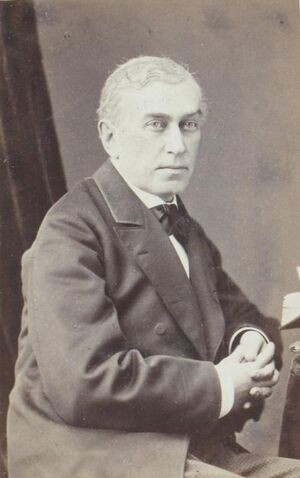Nikolay Zverev
Russian pianist and teacher (b. 13/25 March 1833 at Volokolamsk; d. 30 September/12 October 1893 in Moscow), born Nikolay Sergeyevich Zverev (Николай Сергеевич Зверев).
Zverev was born into a wealthy family, and initially studied mathematics and physics at Moscow Conservatory. After taking piano lessons with Aleksandr Dubuque and Adolf von Henselt, he decided to leave his civil service position to set up a private piano school in Moscow. In 1870, Nikolay Rubinstein invited him to teach at the Moscow Conservatory, where in 1883 he became professor of piano studies. His students included Aleksandr Ziloti, Aleksandr Skryabin, and Sergei Rachmaninoff.
Tchaikovsky taught alongside Zverev at the Moscow Conservatory, and they remained good friends for the rest of their lives. On learning of the pianist's passing in 1893, Tchaikovsky wrote: "Zverev's death saddened me deeply; besides him being my old friend, I always particularly regret the deaths of people who possess that rare quality of treating life as a constant celebration. Particularly in this era of disenchantments, exceptions such as Zverev are very precious" [1].
Dedications
In 1893, Tchaikovsky dedicated his piano piece Passé lointain — No. 17 of the Eighteen Pieces, Op. 72 — "à Mr. Nicolas Zwereff".
Correspondence with Tchaikovsky
No letters from Tchaikovsky to Nikolay Zverev have survived, but four letters from Zverev to the composer, dating from 1881 and 1882, are preserved in the Tchaikovsky State Memorial Musical Museum-Reserve at Klin (a4, Nos. 1231–1234).
External Links
Notes and References
- ↑ Letter 5061 to Josef Přibík, 18/30 October 1893.

